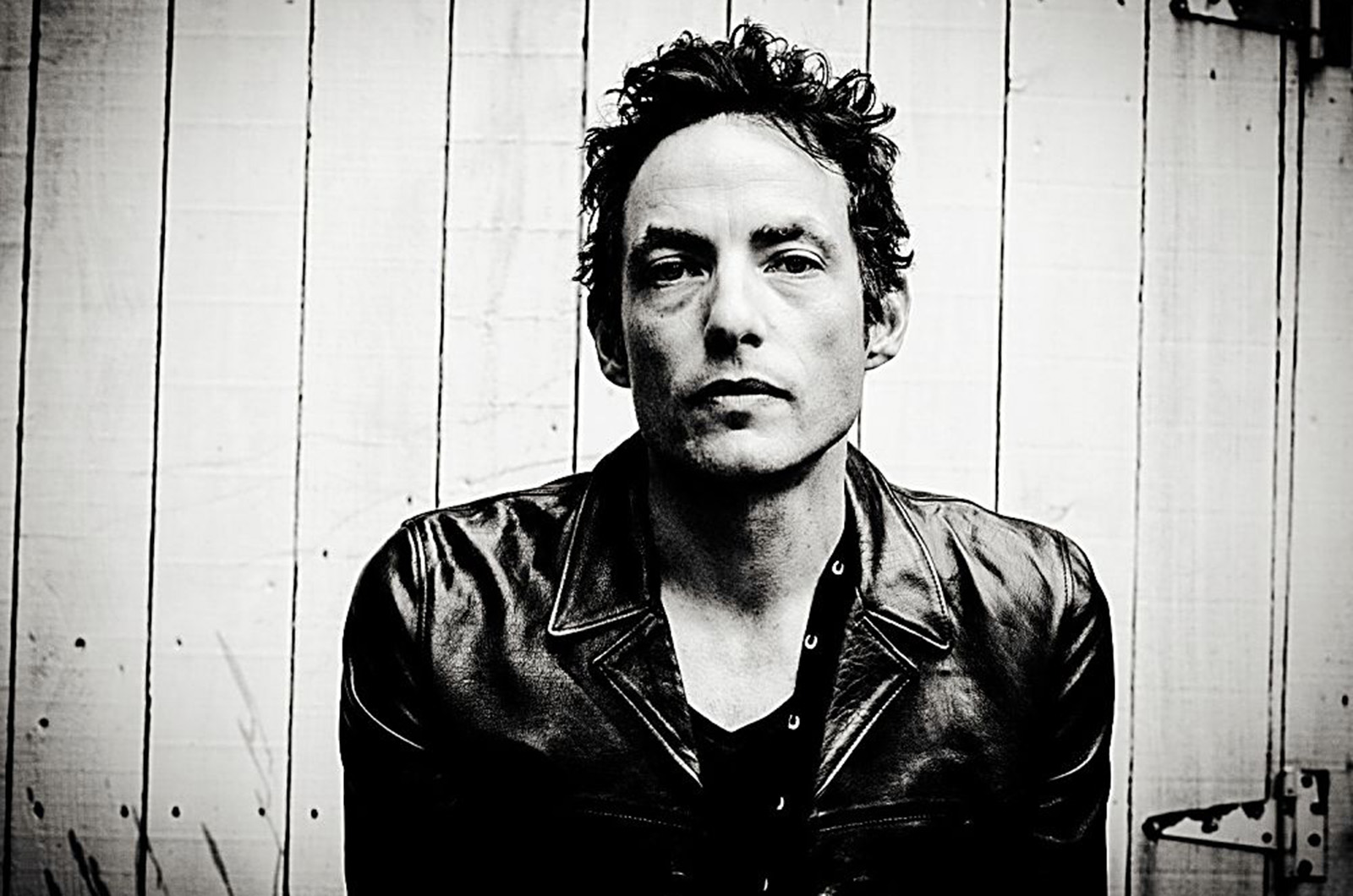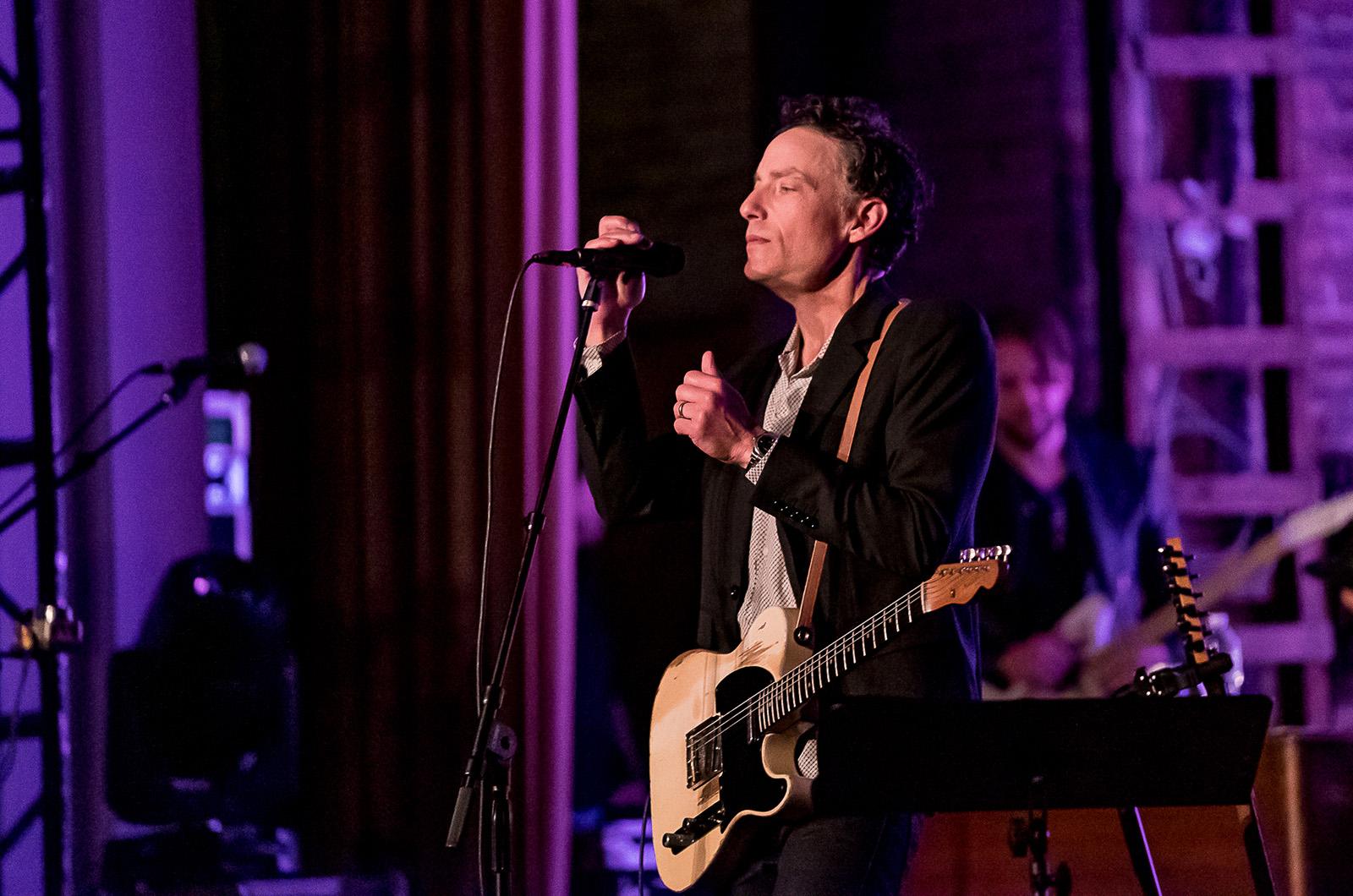Jakob Dylan understands The Wallflowers are a band slightly out of time. Not timing in the rhythm sense, mind you — his member-fluid backing band is a propulsive onslaught that brings it with full intention. But more the notion that rock bands today — long on alchemy between the players, songs that aren’t machined to hit the algorithm — are something of an anomaly.
He also understands that for him, there’s no connection like one man writing songs and a group of people experiencing them in a moment.
“That’s the whole point,” he says “The idea is that we all connect through music. It goes back to being an exchange.”
On Saturday, July 29 Mr. Dylan and the Wallflowers perform at the Martha's Vineyard Performing Arts Center as part of the ongoing Martha’s Vineyard Concert Series. Remaining summer shows include Nickel Creek, David Sedaris and John Hiatt, to name a few.
“Rock and roll’s supposed to be for outlaws,” Mr. Dylan continues. “[Music) may not come back the way it was, but you forge on. You keep playing your music.”

To call Mr. Dylan a journeyman misses the scope of his band’s impact. If not ubiquitous in the ‘90s and ‘00s, their multiple-platinum second album Bringing Down The Horse was produced by T-Bone Burnett. That album delivered the yearning 6th Avenue Heartache and the inescapable One Headlight, which won the 1997 Grammys for Best Rock Song and Best Rock Performance.
Touring on their own, appearing alongside Pearl Jam, Radiohead, R.E.M. and the Beastie Boys at the 1996 Tibetan Freedom Concert at RFK Stadium in Washington, D.C., even opening for the Rolling Stones at Dodger Stadium, The Wallflowers represented the next wave of rockers who demonstrated the songwriting-forward writing of Tom Petty and the Heartbreakers.
If records put their music into the world, playing live brought people together – and that had always called to Mr. Dylan.
“We headlined a lot, but we also opened up a lot because it was an opportunity to expose your music to 18 to 20,000 people. Whether it was Tom Petty or The Who, I really enjoyed the 45 minutes opening up for heroes. I have a connection to those acts. I’m wedged between their times and now, and you learned.”
Beyond the transfer of energy that shows provide, there was also the non-reliance on production to fill in the gaps during a concert.
“It’s the hardest job to do and be effective when there’s no bells and whistles,” he said. “You’re the most exposed, but the five, six people up there showing you what they’re about, what their chemistry is — that’s something that can’t be faked.”
Beyond two acclaimed solo albums, Mr. Dylan and his loose-knit collective have released seven albums and various film songs, working with producers from T. Bone Burnett to Michael Penn, Brendan O’Brien to Butch Walker.
Exit Wounds, released in 2021, focuses on a world emerging from Covid. It uses the personal to metaphorically stand in for larger societal tensions with a clear-eyed look at the realities around us.
“I’m not into sloganeering. I write songs for myself to sing, and because of that I get more of an endless landscape for people to take in. People have to feel something. Songs can be a total mess; they can not be linear, but people feel them.”
Mr. Dylan worked with Grammy-winning Shelby Lynne on four of the tracks, enlisting another vocalist who understands the simmer can be a flashpoint when you bring people together who’ve forged lives.
“I’d never met her before,” he says. “Have you heard her records with her sister Allison Moorer? She’s a character or a personality you can identify, who can swallow the room. But she’s a harmony singer, too. The last thing you can’t fake in a studio, you can’t fake family harmonies — like the Everly Brothers — with AI."
That notion of holding space versus making it mean something underscores the entire conversation. He talks about John Prine who stayed the course, arriving in many ways at his greatest success during the final years of his career. The Band and the Ramones both stayed the road too, playing the dates and taking the music to the people.
“Two of the greatest groups of our time.... and they brought it every time they played. That becomes your collateral, sticking to your guns and not chasing trends. There’s a lot of peaks and valleys, but they kept on.”
He paused, knowing the discussion is also about his own place in the realm of rock and roll.
“I squeaked through. I have a tradition I’m a part of, and I thought I could do this for the rest of my life. If someone asked me for advice today, I don’t know what to tell them, because the younger generation — with eight writers on a song, and I don’t even know how that works — are just gonna connect to songs, not people.”
“Maybe we should stop complaining about it and move on,” he continues. “Recognize that [rock] isn’t going to come back the way it was. Writing songs is really hard, but it’s what I signed on for, and it’s what I do.
“After enough years, there’s a trust issue and an exchange with your audience. They trust you. If you take a left turn, they’ll take it with you. They’re in for the ride. You keep playing your music – and they keep coming for the same reasons.”
Jakob Dylan and The Wallflowers perform at 4 p.m. July 29 at the Martha’s Vineyard Performing Arts Center. For tickets, visit mvconcertseries.com.





Comments (2)
Comments
Comment policy »